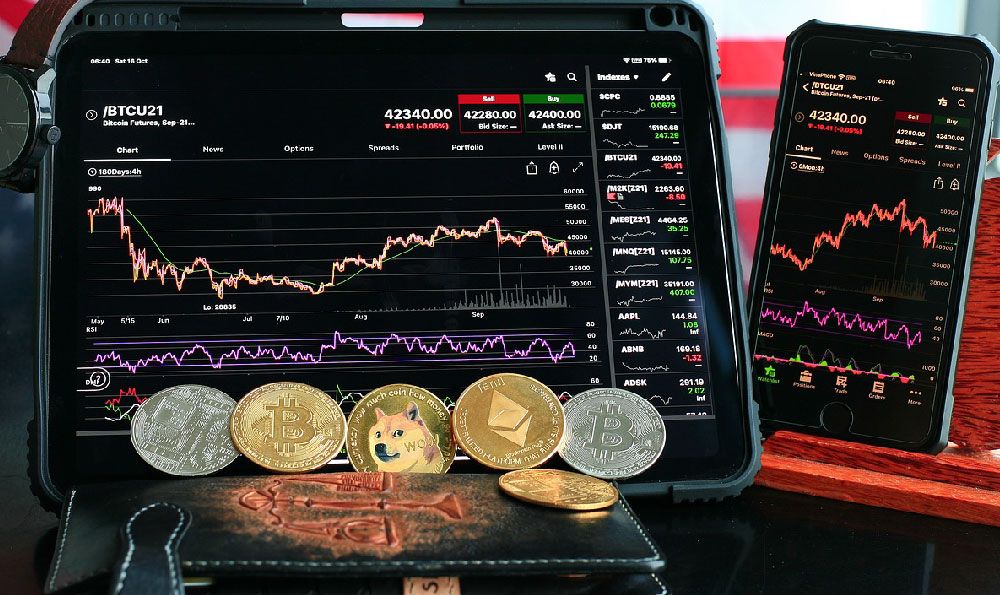Investing $100,000, especially within the relatively volatile realm of cryptocurrency, demands a thoughtful and strategic approach. The allure of quick gains, particularly amplified within communities like Reddit, can be tempting, but long-term success hinges on a well-researched plan and a disciplined mindset. Let's delve into how one might approach investing such a sum in the crypto space, considering various factors and emphasizing risk management.
Before even contemplating specific cryptocurrencies, a fundamental step is to define your investment goals and risk tolerance. Are you aiming for rapid growth, a stable long-term store of value, or a balanced approach? Are you comfortable with the potential for significant losses in exchange for potentially high rewards, or do you prefer a more conservative strategy? Your answers to these questions will heavily influence your asset allocation and investment horizon. For example, someone seeking retirement savings might allocate a smaller portion to crypto compared to someone in their 20s willing to take on more risk for higher potential returns.
Once you've established your risk profile, it's crucial to diversify your portfolio. Putting all $100,000 into a single cryptocurrency, even Bitcoin or Ethereum, is inherently risky. Diversification mitigates risk by spreading your investment across multiple assets, each with varying characteristics and potential for growth. A well-diversified crypto portfolio might include a combination of established cryptocurrencies like Bitcoin and Ethereum, altcoins with promising use cases, and perhaps even a small allocation to emerging decentralized finance (DeFi) projects.

Bitcoin and Ethereum, being the two largest cryptocurrencies by market capitalization, typically form the foundation of a diversified crypto portfolio. Bitcoin, often referred to as "digital gold," is viewed as a store of value and a hedge against inflation. Ethereum, on the other hand, is a platform for decentralized applications (dApps) and smart contracts, powering a significant portion of the DeFi ecosystem. Allocating a substantial portion of your $100,000 to these established cryptocurrencies provides a relatively stable base for your portfolio.
Beyond Bitcoin and Ethereum, exploring alternative cryptocurrencies (altcoins) can offer opportunities for higher growth potential. However, it's imperative to conduct thorough research before investing in any altcoin. Understanding the underlying technology, the team behind the project, the tokenomics, the market capitalization, and the adoption rate are all crucial factors to consider. Look for projects with a clear use case, a strong development team, and a growing community. Avoid projects that are overly hyped, lack transparency, or promise unrealistic returns.
Decentralized Finance (DeFi) has emerged as a significant sector within the crypto space, offering opportunities for earning passive income through lending, staking, and yield farming. However, DeFi protocols can be complex and carry inherent risks, including smart contract vulnerabilities and impermanent loss. If you choose to explore DeFi, start with smaller amounts and thoroughly research the specific protocols you are considering. Audited smart contracts and established platforms are generally safer than unproven ones.
Another critical aspect of investing in cryptocurrency is security. Cryptocurrency exchanges and wallets are vulnerable to hacking, so it's essential to take steps to protect your assets. Use strong, unique passwords for all your accounts and enable two-factor authentication (2FA) whenever possible. Consider using a hardware wallet, also known as a cold wallet, to store the majority of your cryptocurrency offline. Hardware wallets provide an extra layer of security by keeping your private keys separate from your computer or mobile device.
Staying informed about the cryptocurrency market is crucial for making informed investment decisions. Follow reputable news sources, attend industry conferences, and engage with the crypto community. However, be wary of hype and misinformation, which are prevalent in the crypto space. Do your own research and avoid blindly following the advice of anonymous individuals on online forums.
Market timing is notoriously difficult, even for experienced investors. Trying to time the market by buying low and selling high is often a losing strategy. A more effective approach is dollar-cost averaging (DCA), which involves investing a fixed amount of money at regular intervals, regardless of the price. DCA helps to smooth out the volatility of the market and reduces the risk of buying at the top. For example, instead of investing the entire $100,000 at once, you could invest $10,000 per month for ten months.
Investing in cryptocurrency is a long-term game. The market is inherently volatile and prone to significant price swings. Avoid making emotional decisions based on short-term market fluctuations. Have a long-term investment horizon and be prepared to ride out the ups and downs of the market. Regularly rebalance your portfolio to maintain your desired asset allocation. This involves selling some of your winning assets and buying more of your losing assets. Rebalancing helps to ensure that your portfolio remains aligned with your risk tolerance and investment goals.
Finally, remember that investing in cryptocurrency is not a get-rich-quick scheme. It requires patience, discipline, and a willingness to learn. There are no guarantees of success, and you could lose money. Only invest what you can afford to lose, and never put all your eggs in one basket. Consider consulting with a qualified financial advisor before making any investment decisions. They can help you assess your risk tolerance, develop a personalized investment plan, and manage your portfolio. While Reddit can offer valuable insights and perspectives, it should never replace professional financial advice or your own thorough research. Prudence and due diligence are your best allies in navigating the complex and ever-evolving world of cryptocurrency investment.












